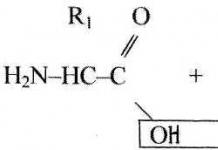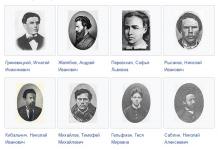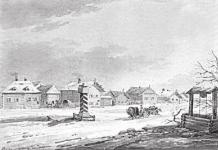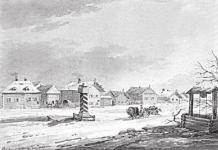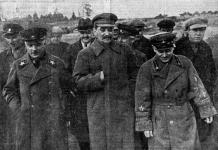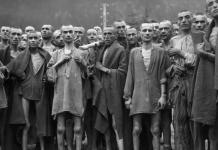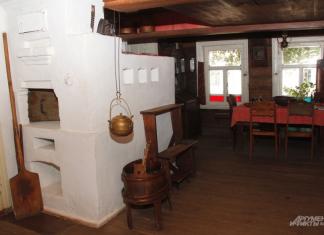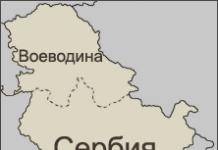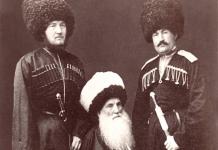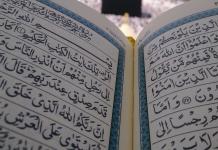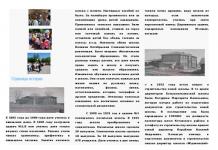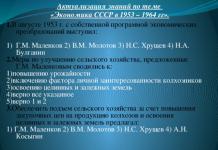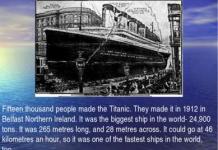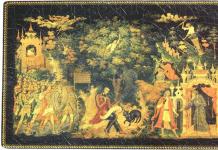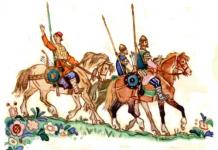Haganah sabotage on the Palestine railway 1947.
The change in the alignment of world powers in the system of international geopolitics began to be clearly manifested by the end of World War II.
The victory of the forces of the anti-Hitler coalition simultaneously put on the agenda the question of the place of each of the allied countries in the post-war hierarchy international relations. It is obvious that the US and the USSR began to put forward claims for leadership, despite the fact that Great Britain was a part of the coalition (France joined them later). The fact that London is losing its important (and in some matters decisive) role, giving way to its former colony - the United States - has become obvious to British politicians. In the post-war world, Washington and Moscow come to the fore, and it is they who will make world politics as centers of new geopolitical systems (which later took shape in the North Atlantic Alliance and the Organization Warsaw Pact). This became clear even to such a wise politician as Winston Churchill, who, in his famous Fulton speech in 1946, openly declared that a new geopolitical reality was coming - the Cold War, and Western countries would have to resist such a force as the socialist camp led by the USSR.
The Cold War brought to an end colonial system. It also meant a departure from a relic of the era of the League of Nations - the mandate system. Britain, which had ruled Palestine by mandate since 1922, now had to decide what to do with the region. The advantageous geographic location of Palestine made it unthinkable for Great Britain to leave Jerusalem. However, London needed to get the right to own this region, because in the new realities of international relations, the old system of dividing the world after the First World War began to be revised. This was well understood in the UK. This was well understood by those in Palestine who wanted the British to leave the region. The struggle for Palestine has become one of the main pages of the post-war history of Asia, and in this article the question will be considered: what made the British leave Palestine - a region whose possession for thirty years provided Great Britain with control over the Middle East?

Palestine until 1948. Agricultural workers had to carry weapons with them at all times.
The fact that the British did not plan to leave Palestine is understandable if we analyze such a fact as the appearance of the post of Commissioner for the Reconstruction of Palestine (Douglas Harris was appointed to this post on March 22, 1943). His responsibility was to implement the plans post-war development agro-industrial complex of Palestine and the implementation of its internal security. Moreover, the plan for the restoration of Palestine was designed for a period of more than twenty years. That is, we see that Great Britain did not plan to leave Palestine. And for the British it was obvious that it was necessary to consolidate their right to own Palestine, already taking into account the changing alignment of international forces.
But in addition to the Great Powers, Great Britain had to take into account the opinion of the Jewish and Arab communities of Palestine, whose political organizations began to play an important role not only within the region, but also at the international level. This was especially true of the Jewish national movement.
Although during the Second World War the Zionist leadership of the Yishuv supported Great Britain, despite the fact that the White Paper of 1939 dealt a significant blow to Zionism, nevertheless, the Zionists were not going to give up their political goals (this is most clearly demonstrated by the words of David Ben-Gurion: “We will fight Hitler as if there were no White Paper, and we will fight the White Paper as if there were no Hitler”). In 1942, the Biltmore Program was adopted, which essentially called for the creation of a Jewish state in Palestine. David Ben-Gurion believed that if the First World War gave the Jewish people the opportunity to create a national home in their historical homeland, then the Second World War will make it possible to build a national state. The importance of the Biltmore program also lies in the fact that, adopted in New York with the active participation of American Zionists, it meant the reorientation of Zionism from Great Britain to the United States. If earlier, mainly because of the Anglophile sentiments of the President of the World Zionist Organization, Chaim Weizmann, the Zionists advocated active cooperation with Great Britain, then new leaders, such as Ben-Gurion, believed that it would no longer be possible to hope for the support of London, since the previous twenty years the rule of the British in Palestine showed that the opportunities for the existing British policy of creating a Jewish state are less and less. According to historian Sergei Shchevelev, back in 1938, the Jewish Agency in Palestine set a course for a reorientation towards the United States. The choice in favor of Washington will be explained a high degree influence of American Jews on their own government, and their financial power. Ben-Gurion understood that the world would change after the Second World War, and the Jews should use these changes for their own purposes. Therefore, his radical demand for the immediate creation of a Jewish state (the Biltmore program said that "Palestine must become a Jewish community integrated into the structure of a new democratic world", which was a camouflaged demand for the transformation of all of Palestine into a Jewish state; the same demand was enshrined at the XXII Congress World Zionist Organization in Basel in 1946) contrasted sharply with the position of Chaim Weizmann, who considered negotiations the only way to achieve the goals of Zionism. But, as historian Irina Zvyagelskaya noted, “life has shown that Ben-Gurion’s line, despite unconditional radicalism, turned out to be more viable and more in line with immediate political tasks.”

Palestine 1947-48. A Palestinian police officer armed with a Ross-Enfield M1917 rifle (according to other sources
"Mauser-Enfield") The end of the British Mandate.
The existing cooperation between Great Britain and the military organizations of political Zionism in Palestine was a forced measure (specifically with the Haganah), but in London they looked at it with great concern, since the military experience that the Haganah fighters could get could later be used against the British themselves, which then in fact, it took place in the course of the terror unfolded with the blessing of Ben-Gurion against the British administration. On October 1, 1945, the future first Prime Minister of Israel sends an encrypted telegram to the Chief of the Haganah General Staff, Moshe Sne, ordering him to start an armed uprising against the British administration in Palestine. The end of 1945 and the whole of 1946 passed in Palestine against the backdrop of Jewish terror against the British. At that time, among the Jewish military organizations, the Haganah (controlled by the Jewish Agency and the socialist party MAPAI), Irgun ( military organization revisionists) and Lehi (the most radical extreme right organization). The weight and capabilities of each of the military organizations depended on the weight and capabilities of the political parties that stood above them, and vice versa. The reality of Mandatory Palestine was a situation where, as historian Irina Zvyagelskaya writes, “political parties were closely associated with trade unions and relied on kibbutz federations and military organizations, which predetermined not only strong political influence in military formations, but also the fact that political the weight of the party was largely determined by the power of the military group that it controlled.

Palestine until 1948. British paratroopers in the cordon.
Among the most notorious acts of terrorism organized by the fighters of the Jewish military underground was a large-scale sabotage on November 1, 1945, during which 153 explosions were carried out on railways Palestine, and the explosion of the King David Hotel on July 22, 1946 in Jerusalem, which housed the British administration. And although the political leadership of the Yishuv officially condemned such and other terrorist attacks, the British quite rightly believed that it was involved in these events. Despite the repressive measures taken by the British against Jewish terrorism (on June 29, 1946, martial law was introduced in Palestine, the institutions of the Jewish Agency, Vaad Leumi, the Land Fund, etc. were sealed, and in 1947, by order of the British Foreign Minister Ernst Bevin, 4,500 Jewish refugees were expelled, who, in his opinion, were a source of instability), the course of an armed uprising against the British by the radical leader of Zionism (and by radical we here mean the demand for the creation of a Jewish state and absolutely free immigration of Jews to Palestine) did not canceled, and the actions of the British only increased anti-British sentiment.

Palestine until 1948. Mounted outfit of the Palestinian police.
Realizing that terror, whatever its scale, would not force the British to leave Palestine, the political leadership of the Yishuv undertook to "put pressure" on Great Britain through its allies in Anti-Hitler coalition, whose international weight increased by the end of the Second World War so much that Great Britain has now moved to third place in the unspoken hierarchy of the Great Powers. As we have already noted, the choice initially in favor of the United States as a country that would “put pressure” on Great Britain was explained by the strong influence of American Jewry on its own government. In the USSR, the political activity of the Jewish lobby was completely absent. It is worth adding here that the position of the USSR in relation to the Palestinian problem in the pre-war years was not in favor of the Zionists: “In the 1920-1930s, in Soviet press active anti-Zionist propaganda was carried out ... The Zionist version of the solution of the Jewish question, despite the fact that the situation of European Jewry was recognized by Moscow as catastrophic, was still considered "a trick of British imperialism." The way out of the situation in Palestine was seen by the Soviet leadership only on the path of "rallying the Arab and Jewish working masses of Palestine, creating a united front of all progressive anti-fascist (both Arab and Jewish) elements of the country" . And it is obvious that politicians like David Ben-Gurion and even Chaim Weizmann could not be satisfied. Therefore, the choice between the USSR and the USA was made in favor of the latter. True, we add that with the help of the Soviet Union, the political leadership of the Yishuv returned to the years 1947-1948, which were decisive for Zionism.

The British in the cordon 1946-1947
During the reign of F. Roosevelt, the United States adhered to the principle of the need to prevent the creation of a Jewish state in Palestine unilaterally. Roosevelt believed that "Palestine should be placed under the joint guardianship of Christians, Muslims and Jews." However, during the 1944 presidential election, Roosevelt, in an effort to get "Jewish" votes, supported the creation of a Jewish state and free immigration to Palestine for Jews. However, during a meeting with the rulers of the Arab countries, he assured them that the problem of Palestine could be solved only taking into account the opinions of its multi-confessional population. Such an ambiguous position of Roosevelt can be explained by an elementary unwillingness to spoil relations with each of the parties: the Jews should be told what they want to hear, and the Arabs should know that american president not on the side of the Jews.
However, the next American president, Harry Truman, was much more loyal to the Zionist project. It was he who began to demand from Great Britain to place Jewish refugees from Europe in Palestine, and to cancel the White Paper of 1939, sharply restricting immigration, since it was adopted without discussion in the League of Nations. It was precisely the pressure that the Americans began to exert on Great Britain that prompted the latter to come forward on November 13, 1945, with a proposal to create an Anglo-American Committee on Palestine. The fact that the British included only Americans in this working commission suggests that Great Britain did not want any other international players, such as the USSR, to interfere in Palestinian affairs (which in London were considered purely internal to the United Kingdom). The Anglo-American Committee on Palestine was the first international organization to set about solving the Palestinian problem after the war. The obligatory presence of the British in it is explained by the confidence of Great Britain that this committee will decide the question of Palestine in favor of continuing the mandate administration.

Palestine 1947-48. Sabotage of the Jewish underground workers on the railway.
The hopes of the British were justified. The Anglo-American Committee on Palestine opposed the granting of independence to Palestine, and it does not matter in what form it will be: whether Palestine remains united or whether it is divided - any of these plans were rejected, and therefore it would be better to leave Palestine under the British Mandate. Although the American side of the committee raised the issue of the immediate immigration of 100,000 European Jews to Palestine, however, British Foreign Secretary Ernst Bevin rejected this demand, citing the fact that new immigrants could join the ranks of the Zionist military organizations, and therefore pose a threat to the British administration in the region .
In order to somehow solve the problem of Palestine, but at the same time not to involve other countries in this, and since the proposals of the Anglo-American Committee on Palestine did not suit official London, the Morisson-Grady plan was developed, named after Herbert Morisson and Henry Grady, who led the British and the American Panel of Experts of the Anglo-American Committee on Palestine, respectively.
The essence of this plan was that the territory of Palestine was to be divided into four provinces: Arab, Jewish and two British. The central authority in all of Palestine remained with the British, who left behind the issues of foreign trade, the monetary system, defense, and communications. The rest of the provinces had autonomy. The main purpose of creating an Arab and Jewish province is to shift the problems of immigration that irritate Britain so much. After the creation of the Jewish province, it could receive an unlimited number of Jewish immigrants. And thus, the British believed that the demands of the Zionists for immigration would be satisfied, the Arabs would receive their own province, in which Jewish refugees from Europe would not penetrate, and in fact all control over Palestine would still be in the hands of Great Britain.

As you can see, the Morisson-Grady plan was another attempt by the British to somehow retain possession of Palestine, especially since such important economic issues as foreign trade and the monetary system remain under the jurisdiction of Great Britain.
However, this plan was rejected both by the members of the Arab League at the Bluedan Conference (September 9, 1946), and by the Palestinian Higher Arab Committee (London Conference in September 1946 - February 1947) and the World Zionist Organization (XXIII Zionist Congress in Basel 1947).
The failure of the Morisson-Grady plan did not stop the desire of the British to look further for possible ways to solve the Palestinian problem in their favor. In February 1947, Foreign Minister Ernst Bevin put forward his plan for overcoming the Palestine crisis, known as the Bevin Plan. The essence of Bevin's plan was to ensure that Palestine remains under the control of Britain for five years, during this period elections to a local single parliament take place, which will decide the fate of Palestine. This plan was opposed by both Arabs and Jews. The Arabs were not satisfied with the fact that the question of Palestine was again postponed, even if for five years, and the Jews did not want to have a minority in the parliament that might meet in the event of an election, since the number of Jews was significantly lower than the Arab population of Palestine.
Ultimately, the British, unable to solve the Palestinian problem on their own, neither with the help of their Western allies - the Americans, nor with the help of the Arabs, nor with the help of the Jews (both of them wanted the British to leave, which, of course, did not suit London ), decided to leave the discussion of the fate of Palestine to the discretion of the United Nations. The logic of the British government is quite understandable: since by 1947 it was clear to the naked eye that relations between the US and the USSR, each of which sought to create its own military-political bloc, was already in such a state of confrontation that Washington and Moscow would hardly be able to agree on the same solution of the Palestinian problem. As a result, playing on the contradictions between the US and the USSR, the British hoped that the UN would simply prolong Britain's mandate, perhaps by changing the terms of ownership, but in fact leaving control over Palestine to London.

Palestine until 1948. Mobile parts of the Palestinian police.
By February 1947, when Great Britain referred the issue of considering the Palestinian problem to the UN, all states in the Middle East had independence. Only one Palestine still remained under the British mandate. The UN General Assembly decided to create the UN Special Commission on Palestine (UNSCOP; established on May 13, 1947), which included eleven representatives of neutral states (Canada, Czechoslovakia, the Netherlands, Guatemala, Peru, Sweden, Uruguay, Iran, India, Yugoslavia and Australia). UNSCOP visited Palestine, where they held meetings with members of the Jewish Agency. The Arab Higher Committee refused to cooperate with this UN organization, which was a mistake. During the work of UNSCOP, its members witnessed the operation of the British to forcibly deport 4,500 Jewish refugees (including 400 pregnant women) who arrived in Palestine on the Exodus ship. This action made an impression on UNSCOP members. Seeing such a difficult situation, the commission, eventually divided in opinions about the fate of Palestine, decided by a majority of votes on the need to divide Palestine into three parts: one was assigned to the Jewish state, the other to the Arab state, and the third to the UN (Jerusalem and its environs). ). This option, in principle, suited the Zionists with the proviso that they wanted a large part of the territory of Palestine under their state, which was offered to them by the commission. However, this process required a transitional period. The US proposed (and the British supported) that during this transitional period Palestine should continue to be under British rule. That is, apparently, the British still remained in Palestine.

The British confiscate illegal weapons in one of the kibbutzim Palestine 1946
Since the Palestinian problem, from a purely local one, began to acquire an international character, the USSR showed interest in this region. The desire of the Soviet Union to oust the British from the Middle East and, if possible, to gain a foothold there, forced them to change their position. Initially, Moscow advocated the abolition of the mandate and the formation of an independent Palestine without dividing it into two states. However, in the future, seeing that such an option is impossible, the USSR stakes on the division of Palestine. After all, the Kremlin believed that the formation of a Jewish state would harm the interests of Great Britain, since the Arab states surrounding Palestine were under strong British influence. The emergence of a Jewish state, the unthinkability of which was perceived by almost all Arab countries (an exception can be made in relation to Transjordan, whose emir actively negotiated with the Zionists), harmed British policy in the Middle East. Despite hostility to Zionism as an ideology, the USSR supported the partition of Palestine and actually advocated the formation of Israel.
As a result, at the initiative of the USSR, a draft resolution on the division of Palestine, the formation of two states on its territory and the termination of the British mandate was submitted for discussion by the UN General Assembly. The British, who believed that the USSR and the USA would not find a common solution and, as a result, the resolution would not be adopted, and then the UN would actually prolong the British mandate. Moreover, the United States has already made such a proposal.
When voting on the Soviet resolution began on November 25, 1947, the opinions of the UN members (then there were 57 countries) were so divided that for another four days it was necessary to debate the Palestinian question (the voting went like this: 25 UN members voted for the division of Palestine, departure of the British and the formation of the Jewish and Arab states, 13 against, 17 abstained, 2 were absent; for a decision to be made, it was necessary to gain two-thirds of the positive votes). As a result, after a second vote on November 29, 1947, resolution No. 181 / II was adopted, according to which Palestine was to be divided into 8 parts, where 3 - under the Jewish state, 3 - under the Arab state, 1 - the Arab enclave of Jaffa on the territory Jewish state and 1 - the city of Jerusalem and its environs under the control of the UN. Britain was to withdraw its troops and leave Palestine no later than August 1, 1948.

Palestine until 1948. The landing of British troops. Haifa.
It would seem that the possibilities of the British to stay in Palestine - an important region of the Middle East from the point of view of strategic communications - have been exhausted. Although the British government, after the UN decision, announced that it would leave Palestine on May 15, 1948, the actions of the mandate administration in the second half of 1947 somehow do not speak of this. Yes, the researchers noted that in relation to Palestine, the years from 1945 to 1948. can be characterized as a period of gradual curtailment of mandate power structures and a sharp escalation of interethnic tension, which led to a full-scale war between the newly proclaimed State of Israel and all the Arab countries bordering it. But how can one explain the fact that even in the autumn of 1947 the British continued to build military fortifications in the Gaza Strip? Why build (and therefore invest a lot of money in it) something if you have to leave it all?
According to historian Dmitry Prokofiev, the British planned to create, at least in this part of Palestine, a huge military base, where British troops withdrawn from the territories of Egypt, Syria, Lebanon and Iraq would be redirected. This is first.
Secondly, the UN commission, which was supposed to monitor the implementation of resolution No. 181 / II, was unable to travel to Palestine. The British declared that they were not going to help her in her work, and also did not at all guarantee her safety in the conditions of the already actually begun civil war in Palestine between Jews and Arabs. The latter circumstance led to the fact that the commission never left for Palestine, but carried out its work while sitting in New York. It is clear that her absence in Palestine still meant that the power in this region was in the hands of the British.
Thirdly, it remains very curious that, having transferred the solution of the Palestinian problem to the UN, Great Britain in February 1947 adopted a secret memorandum, according to which it would be beneficial for the British to have Palestine come under the rule of Transjordan, which was under strong British influence. This was argued by the fact that it is necessary "to secure the corridor from the Red Sea through the Negev desert and Gaza to the Mediterranean Sea." This would give Britain the opportunity to consolidate "prevailing British military and political influence in an area of great strategic importance".

Illegal immigrants detained by the British Palestine 1947.
Fourth, the civil war that began between the Jews and Arabs of Palestine after the adoption of resolution No. 181 / II, when both sides wanted to expand the borders of their own future state, Great Britain did not interfere in the Arab-Jewish clashes and did not try to somehow stop them. The reason is that London felt that the inevitable Arab-Jewish war would serve as a pretext for bringing back British troops in order to restore order. The last High Commissioner, Allen Cunningham, was ordered not to interfere in the conflict between Jews and Arabs. Moreover, the British began to withdraw troops ahead of schedule in order to bring a real war closer as soon as possible. The logic of the British proceeded from the fact that in the course of really big war, the victory will be for the Arabs due to their large numbers. However, this did not prevent the British administration from selling ammunition and equipment to the Haganah.
Fifthly, in February 1948, the Prime Minister of Transjordan visits London, to whom the British declare that after the expiration of the mandate, Jordanian troops under the command of British General John Glubb should enter that part of Palestine, which, according to resolution No. Arab state.
Sixth, when bloody military clashes began between Jews and Arabs (among them, the tragedy in the Arab village of Deir Yassin on April 8-9, 1948 is worth noting), the League of Arab States demands that a UN Special Session dedicated to the Palestinian problem be convened. Seeing already the scale of the beginning of the war, voices are beginning to be heard in the UN for the transfer of Palestine under its guardianship. The United States was in favor of keeping the British military presence in the region, believing that the British would be able to restore the necessary order. The British representative to the UN supported this proposal, saying that London is ready to increase its military contingent in Palestine. This is another proof that the British really wanted to stay in Palestine.

Ship with illegal immigrants Palestine 1947.
For thirty years of mandate rule, the British did not plan to lose such an important region in terms of strategic communications as Palestine. But seeing that the Versailles-Washington system that collapsed during the Second World War, according to which Great Britain received Palestine, as well as other countries, under its control, will inevitably lead to its revision after the war. The appearance on the international level of the two Great Powers of the USA and the USSR actually led to the fact that Great Britain found itself in the role of the third. And inevitably, two new world players will want to raise the issue of the territories inherited from the British from Ottoman Empire. In this regard, the desire of Great Britain to retain all or part of Palestine by any means looks quite natural. And seeing the course of the post-war history of the solution of the Palestinian problem, it becomes clear that the British absolutely did not want to leave the region, which they owned for thirty years. The vector of development of international relations in the beginning of the Cold War inevitably pushed London out of the Middle East. And in the new geopolitical reality, Great Britain was forced to withdraw from Palestine.
"Why did the British leave?" - this question placed in the title of the article could also be specified: “Did the British want to leave Palestine?” Obviously not. The whole set of circumstances forced the British to leave the region. Their hope of returning to Palestine, even if with the help of the Arab armies, did not materialize. And this became clear by 1949, when the first Arab-Israeli war ended. Most likely, this is why the UK did not recognize Israel in the first year of its occurrence ( diplomatic relations were installed only in 1950). But the departure of the British did not solve the Palestinian problem the way the world wanted then. Israel appeared and exists for more than 60 years, and the Arab state in Palestine has not yet been formed. So the world community has not been able to fully solve the Palestinian problem yet.
Notes:
1. Palestine. A Study of Jewish, Arab and British Polices. Vol. II. New Haven: Yale University Press; London: Oxford University Press, 1947. P. 1061
2. Shevelev S.S. Palestine under British mandate (1920-1948). Simferopol: Tavria-Plus, 1999. P.221
3. Bar-Zohar M. Ben-Gurion. Rostov n/a: Phoenix, 1998. P.163
4. State of Israel. M.: Institute of Oriental Studies RAS, 2005. P.69-70
5. Bar-Zohar M. Ben-Gurion. P.194
6. Zvyagelskaya ID Zionist armed forces: goals and methods of capturing Palestine // Peoples of Asia and Africa. 1976. No. 6. p.123
7. Zadka S. Blood in Zion: How the Jewish Guerrillas drove the British out of Palestine. London-Washington: Brassey's Ltd, 1995. P.90-95
8. Agapov M.G. The Palestinian problem in the 1920-1930s in the coverage of the Soviet press // Proceedings of the Twelfth Annual International Interdisciplinary Conference on Jewish Studies. Part 2. Academic Series, Issue 18. M., 2005. S.430-433
9. Tarasov P.K. Positions of Great Britain and the United States of America in the Palestinian Question during the Second World War // Oriental Collection. Issue I. Simferopol: TEI, 1997. P.94
10. Kolobov OA United States of America and the problem of Palestine. Nizhny Novgorod: Nizhny Novgorod University Press, 1993
11. Shevelev S.S. Palestine under British mandate. p.230
12. The Rise of Israel. The Anglo-American Committee on Palestine 1945-1946 / ed. by M. J. Cohen. New York, 1987. P.136-218
13. El-Eini R. Mandated Landscape: British Imperial Rule in Palestine, 1929-1948. London: Routledge, 2006. P.360-365
14. Origins and history of the problem of Palestine. Part I. 1917-1947. New York: United Nations, 1978. p.86
15. United Nations. Official Records of the Second Session of the General Assembly. Resolution 16 September - 29 November 1947. 181 (II) Future Government of Palestine. New York, 1948. P.132-133
16. Epstein A., Uritsky M. Board british empire in Palestine (1917-1948): between Jews and Arabs // Cosmopolis. Journal of World Politics. 2005. No. 11. pp.107-108
17. Prokofiev D. The birth of the crisis // Asia and Africa today. 1988. No. 1. p.17
18. Medvedko L.I. Middle East: the longest "conflict of the century" // Questions of history. 1988. No. 6. p.138
19. Prokofiev D. The birth of the crisis. p.20
20. Shevelev S.S. Palestine under British mandate. p.266
With another.
In Israeli historiography - "War of Independence" or "War of Liberation", dates back to 1947-1949.
It began on the night of May 14-15, 1948, after the proclamation of the State of Israel and the completion of the British Mandate in Palestine. It was preceded by extensive clashes between the Arab and Jewish communities in Palestine, which lasted from November 30, 1947, after the adoption by the UN General Assembly of the Resolution on the Partition of Palestine, which provided for the creation of a Jewish and Arab states, as well as the allocation of an international zone in Jerusalem. During the armed conflicts in December 1947 - March 1948, about 2 thousand people died. The Jewish armed formations of the Yishu-va were opposed by the volunteer Arab liberation army(Jaysh al-inkad al-arabiy, AOA), formed in Syria and entered Palestine under the command of Fawzi Kaukadzhi in January 1948. In parallel, Abd al-Qadir al-Husayni, the nephew of the leader of the Palestinian Arabs, Mufti of Jerusalem Muhammad Amin al-Husayni, organized the Army Holy War (Jaysh al-Jihad al-Mukaddas), which blocked the 100,000th Jewish population of Jerusalem. At the end of March 1948, the Yishuv unsuccessfully tried to break the blockade. Since April 1948, the leadership of the armed forces of the Yishuv adopted strategic plan"Dalet", according to which the Jews had to take the initiative in their own hands in order to break the blockade of Jerusalem. The tasks of Jewish self-defense - the Haganah included the occupation of Arab settlements and the establishment of control over the city left by the British troops. As a result, the Jews gained control of the cities of Tiberias, Safed, Haifa, Beit Shean and Jaffa; the Arab inhabitants of these cities and surrounding settlements were forced to flee. In total, from November 1947 to May 1948, about 400 thousand Arabs became refugees. In general, by the time the British mandate expired, the armed forces of the Yishuv had captured about a hundred Arab settlements and gained control over the main transport routes of Palestine.
The Arab states, which refused to recognize the Resolution on the Partition of Palestine, were waiting for the expiration of the mandate and were preparing to invade the territory of Palestine. main role Transjordan, Egypt, Syria played with actual support from Great Britain. On the night of May 14-15, 1948, the troops of 5 of the 7 members of the League of Arab States (LAS): Egypt, Iraq, Jordan, Lebanon and Syria invaded the territory of the former British Mandate. King Abdullah I of Transjordan declared himself commander in chief. The official statement of the LAS state said that their goal was to create a united Palestinian state throughout the territory. Israel, the US and the USSR condemned the Arab invasion of Palestine as illegal aggression, while China supported the Arab League's demands.
By decree of the head of the interim government of Israel, D. Ben-Gurion, on May 26, 1948, a regular army was created - the IDF; the armed formations announced their disbandment, their fighters were accepted into the army. On May 28, the Jewish quarter of Jerusalem was blocked; the Tel Aviv-Jerusalem highway was also blocked, and the city found itself in a blockade, which the Israelis failed to break through. In the north, Syrian troops invaded south of the lake. Kinneret and attacked until they were stopped at Kibbutz Dganiya. In the south, the Egyptian army was able to break through the defenses of the kibbutz, but met with fierce resistance and stopped in the Ashdod area.
Through the mediation of the UN representative F. Bernadotte, a ceasefire agreement was reached between the parties to the conflict, which entered into force on June 11 and lasted until July 8. Bernadotte proposed his own settlement plan, based on the idea of creating a union of states, in which the Arab side should be represented by Transjordan, and an exchange of territories was supposed: the Negev goes to Transjordan, Western Galilee to Israel, and Jerusalem will go to Transjordan with a guarantee of autonomy for the Jewish population. Plan City was categorically rejected by the parties, with the exception of Abdullah I, who was attracted by the idea of expanding the territory of Transjordan, as well as the British representative on the UN Security Council.
After the resumption of hostilities, between July 9 and 18, 1948, the Israelis took Nazareth and a number of other settlements, but attempts to break into Old city Jerusalem were not successful. By July 18, Bernadotte prepared new plan settlement of the conflict, which recognized the reality of an independent Jewish state; Galilee completely passed to Israel, Transjordan annexed the Negev, Ramla and Lod. And this plan was rejected by the parties. On September 17, Bernadotte was killed in the New City of Jerusalem by a member of the Lehi militant organization. October 15 ground forces Israel, with air support, launched an attack on the Negev. In the north, the AOA attacked Kibbutz Manara on the border with Lebanon. In response, the Israeli side attacked the main bases of the AOA, which was forced to retreat to the Lebanese border.
On December 22, the IDF launched Operation Horev, the purpose of which was to push the Egyptian army as far as possible from the borders of Israel. The operation ended on January 7, 1949, when the IDF surrounded the Egyptian army in Gaza and entered the Sinai Peninsula, forcing Egypt to evacuate troops and begin peace negotiations.
Negotiations with a view to a final settlement of the problem began on January 13, 1949 on the island of Rhodes. On February 24, the General Egyptian-Israeli Armistice Agreement was concluded; Israel signed a similar agreement with Lebanon on March 23, with Jordan on April 3, and with Syria on July 20. Iraq, Yemen and Saudi Arabia have not signed a truce. The new borders of Israel, according to the agreements, covered about 78% of the former mandated territories. The borders established by the truces became known as the "Green Line". Gaza Strip and the West Bank Jordan were occupied respectively by Egypt and Jordan. A demilitarized zone was established between the territories controlled by Israel and the Arab states.
The Arab states did not recognize Israel, believing that an Arab state should be formed throughout Palestine. The problem of refugees remained unresolved, many of whom are still in neighboring Arab states. This set of issues became the basis of the so-called Palestinian problem, which has not been resolved to date.
Russian Historical Encyclopedia
By the time the Declaration of Independence was proclaimed, there were about 30 thousand fighters in Haganah, 5,000 in Etzel, and 1,000 in Lehi. After the proclamation of the state, the Lehi detachments joined the Haganah. Two weeks later, Etzel entered the Haganah. The united armed forces of the Jewish state began to be called the Israel Defense Forces (Tsva Haganah le-Israel, abbreviated as "Tsahal"). Now all the armed forces of Israel were under a single leadership. On May 31, 1948, mandatory mobilization into the active army was announced.
After the end of the British Mandate (May 15, 1948), the Israeli army experienced a shortage of weapons. In terms of numbers, the Tsakhal was not inferior to the Arab armies (and later surpassed them), but the Israeli army lacked not only artillery, tanks and aircraft, but also personal weapons. At the same time, the Yishuv developed its own military industry. The main role in this was played by underground military factories (TAAS), purchased by engineer Chaim Slavin. However, despite the various sources of arms supply (manufacturing of low-quality weapons locally and supplying weapons from abroad), the Israeli army until 1956 experienced a shortage of modern weapons, especially light small arms.
By May 14, 1948, the armies of the Arab states, ready for the invasion, were concentrated on the borders of Palestine. Egypt allocated 10 thousand soldiers for these purposes, Jordan - 6500 soldiers (Arab Legion), Syria - 3000 soldiers, Iraq - 4500, Lebanon - 3000.
Among the Arab detachments reigned excessive enthusiasm regarding the forthcoming "small victorious war". But despite the general jubilation of the army and the people, many Arab senior officers and political leaders expressed concern. The weakness of the Arab high command, the low combat readiness of officers and soldiers, the lack of coordination, mistrust, disregard for the interests of the Palestinians, disunity, suspicion, misinformation about Israeli forces - all these factors reduced the advantage of the Arab armies. In addition, mutual distrust and suspicion flourished among the Arabs. The Egyptians believed that King Abdullah of Jordan was most interested in Jerusalem and in joining the lands intended for the Palestinian state to his kingdom. The Egyptians, for their part, were not going to do anything for the common cause. The commander of the Egyptian forces in Singai, Major General Ahmad Ali al-Muavi, was strongly opposed to the invasion of Palestine and argued that the army was not ready for war. Despite the fact that Abdullah declared himself commander-in-chief of the combined invasion forces, he never received any information about the plans of his "subordinates" and gave no order to another Arab army.
The first stage of the Arab-Israeli war of 1948-1949: hostilities from May 14 to June 11, 1948
The invasion of the armies of five Arab countries simultaneously on three fronts forced the general staff of the Haganah to disperse the forces of the Yishuv and made it impossible to take a strategic initiative in the first days of the war. The advantage of the enemy in numbers and armament was constantly affecting. Israeli troops suffered heavy losses. On May 18, after fierce fighting, the enemy managed to capture the settlements of Shaar ha-Golan, Tsemakh and Masada (a kibbutz in the Kinneret region). However, the settlement of Dagania, which was defended under the leadership of Moshe Dayan, the Syrians could not take.
In the center of the country, the Arab Legion was able to capture the Tel Aviv highway in the Latrun region and cut off Jerusalem from the coast. In Jerusalem itself, the Legion attacked the Jewish quarter of the Old City and blockaded it. On May 28, the defenders of the Jewish quarter of the Old City had to surrender. It also failed to break the blockade of Jerusalem. Attacks on Latrun were repulsed and Israeli troops suffered heavy casualties.
During the fighting, the international community chose to refer the question of the status of Jerusalem to the UN representative, Count Folke Bernadotte. Already in May 1948, Bernadotte proposed the demilitarization of Jerusalem, according to his plan, the Negev was to withdraw to Transjordan in exchange for Galilee, and UN control over ports and airfields was to be established. However, by the time the UN mediator, Count Bernadotte, arrived on the scene of the conflict, the Arab Legion had captured the Old City, and much of the new Jerusalem was in Jewish hands.
The southern border of Palestine was crossed by a large Egyptian army. One part advanced to Gaza, another set out for Beersheba, a third tried to advance towards Hebron and Bet-Lehem. In the south, the Egyptians reached Ashdod and threatened Tel Aviv. Jewish sappers blew up a bridge north of Ashdod and stopped the Egyptian army 32 kilometers from Tel Aviv. On June 1-10, 1948, fighting continued on all fronts. Meanwhile, the UN was trying to reconcile the conflicting parties. The UN mediator, Swedish Count Folke Bernadotte, managed to bring the warring parties to an agreement on a temporary ceasefire, which came into force on June 11, 1948.
First and second armistice agreements and violations of the armistice agreements
The first agreement on a temporary ceasefire on June 11 - July 9, 1948 allowed the Tsakhal to regroup its forces and better prepare for the next stage of the war. At this time, a political crisis occurred in the State of Israel. In June 1948, during the truce in the War of Independence, the Israeli government demanded that Etzel immediately transfer weapons to the Tsahal. However, the Etzel leadership refused to comply with this demand. By decision of the government, the Altalena steamer, which was transporting Etzel weapons, was fired upon. Ben-Gurion was determined to uphold the principle of one-man command in the army. He ordered the complete disbandment of the Etzel formations. M. Begin refused to carry out actions of retaliation against the supporters of D. Ben-Gurion, and thus prevented a civil war in the State of Israel. Subsequently, in September 1948, by order of D. Ben-Gurion, the headquarters of the Palmach was dissolved - thus, the Palmach was integrated into the Tsakhal.
The Arab armies also used the respite to reorganize their forces. It became obvious to the Arab commanders and officers that a quick victory could not be achieved. However, mistrust and suspicion doomed all attempts at interaction to failure in advance. The Egyptians tried with all their might to prevent Emir Abdullah from annexing too large territories. However, the Egyptians and Iraqis themselves failed to strengthen their positions and replenish the composition of their armies.
At this time, the UN mediator Bernadotte prepared a plan for concluding a peace treaty in the Middle East region. This plan was based on a proposal to transfer Jerusalem and the Negev to Jordan, and Western Galilee to Israel, and to establish a confederation between the two countries. Soon after the first ceasefire came into effect, Bernadotte decided that the status corpus separatum for Jerusalem has lost its relevance. Bernadotte suggested that the entire city be annexed to Transjordan instead. Members of the League of Arab States rejected this proposal, since Jerusalem then became the undivided property of the Hashemite dynasty, and the Arab governments were not at all interested in such a success for Abdullah. The Israelis were not interested in this either, who withstood the most difficult siege and blockade, but did not leave new town. Bernadotte's proposal was rejected by both sides. On July 8, two days before the deadline, the Egyptians violated the truce, and the Tsakhal responded with an immediate counterattack.
After the delivery of ammunition and the reorganization of the army, the Israeli armed forces began to push the less organized and outnumbered armed forces of the Arab countries. In the period of July 9-18, 1948, the Tsakhal launched an offensive on the central and northern fronts. Operation Dani was carried out in the center of the country, as a result of which Lod, Ramla and the surrounding villages were in the hands of the Israelis. The local Arab population was expelled from these cities - the Israeli command believed that the presence of Arabs near the Israeli airfield posed a threat to national security. Tel Aviv was no longer in danger of being captured, traffic resumed along the Jerusalem highway, except for the Latrun section, which Israeli transports bypassed along the Burma Road. On the northern front, Nazareth was taken on July 16. Only in the south did the Israeli troops fail to break through the lines of the Egyptian troops and come to the rescue of the kibbutzim of the Negev, repelling the attacks of superior enemy forces.
With the resumption of hostilities in July 1948, Bernadotte finally recognized the change and came up with an alternative proposal that called for the demilitarization of the city of Jerusalem, but left the occupying forces to rule it. It was believed that Israel and Transjordan agreed to at least sit down at the negotiating table. However, other Arab countries were not ready for this. Therefore, on July 29, 1948, the UN Trusteeship Council decided to postpone indefinitely all debate on the status of Jerusalem.
On July 18, 1948, the second ceasefire agreement, initiated by the UN, came into force. The Tsakhal used it to further mobilize human and material resources. In a few months, the composition of the Israeli army reached 100 thousand people. Tanks, planes, artillery guns began to arrive from abroad. At this time, Bernadotte traveled to a number of countries, trying to find support for his peace initiative. Bernadotte again unsuccessfully tried to approve his plan, according to which the Negev - cut off by the Egyptians - passed (in violation of the UN General Assembly resolution) to the Arabs.
Second phase of the war: July 1948 – February 1949
The Israeli government decided to take urgent measures to prevent the Negev from being torn away from the Jewish state. Israeli troops staged a violation of the armistice agreement by the Egyptians and carried out several military operations, among which the most notable were Operations Joab and Horev. The Tsakhal broke through the Egyptian defense lines and surrounded the Egyptian brigade in the Faluja area (now the city of Kiryat Gat). The road to Sinai was open, and the entire Egyptian corps was threatened with defeat. Only under pressure from Great Britain and following the decision of the UN, the Israeli government withdrew troops from the Sinai to the border between Egypt and Palestine from 1906. The surrounded Egyptian forces were evacuated. One of the officers who left the encirclement was G.A. Nasser, future president of Egypt.
The southern Negev, which belongs to Israel under the UN plan for the partition of Palestine, was in the hands of the Arabs until the completion of Operation Tsakhala, codenamed Ovda, on March 10, 1949. During Operation Ovda, the last operation in the War of Independence, the Negev and Golani brigades reached Umm Rashrash, a small village on the northern shore of the Gulf of Eilat (Aqaba), and hoisted the Israeli flag in what is now Eilat.
ceasefire agreements
The defeated Arab armies agreed to sign ceasefire agreements. The War of Independence is over. With the mediation of the UN on the island of Rhodes on February 24, 1949, a ceasefire agreement between Israel and Egypt was signed. On March 23, 1949, on Rosh HaNikra, an agreement was concluded with Lebanon. Israel agreed to withdraw its troops from 14 villages and restore the old borders. In April - with Jordan, July 20, 1949 - with Syria (demilitarized zone agreement). Iraq refused to sit down at the negotiating table with Israel, but withdrew its troops from Palestinian territory as a result of negotiations conducted for it by Jordan.
In May 1949, the UN General Assembly accepted Israel as a member of the UN on the recommendation of the Security Council, given the assurances to comply with resolutions 181/11 and 194/111. However, it should be noted that the Israeli government denied the right of Palestinian refugees to return, and of the 650,000 Palestinian refugees who left Israel in 1948 (E. Zureik notes that there were about 800,000 of them), only 35,000 received the right to return to Israel in under the family reunification program. It should also be noted that "Temporary General Armistice Agreements" in February-July 1949 did not solve the problem of peace and borders.
The ceasefire agreements were only the beginning of international efforts to resolve the Arab-Israeli conflict, undertaken under the auspices of the UN. In accordance with the resolution of the General Assembly of December 11, 1948, the "Conciliation Commission", which had three objectives: reaching a binding treaty between Israel and its Arab adversaries; facilitating measures for the return of Palestinian refugees; development of a system of permanent international government in Jerusalem. Ultimately, the commission failed in any of these tasks. With its ill-conceived actions, the UN commission has deprived the existing truce of any prospect. After the end of the War of Independence, the lack of a solution to the problem of the Palestinian refugees, the lack of peace treaties Israel and neighboring Arab states doomed the Middle East region to a long armed confrontation.
Along with this they read:
Prewar US Middle East Policy
Civil War in Palestine
US Middle East Policy in 1948
Arab refugees poured in from its territory. All neighboring Arab states have declared war on Israel. But the Muslim armies, with the exception of the "Arab Legion" of Transjordan learned by the British advisers, were unable to win military victory over the Israelis. The Jewish formations were well-armed, including Soviet weapons that came to them through Czechoslovakia. The Arabs only succeeded in capturing some of the parts of the Palestinian territory designated, by resolution No. 181 of the UN General Assembly, for the Arab part of the Palestinian state. Egyptian troops occupied the Gaza Strip, and Transjordanian troops occupied the western bank of the Jordan River, part of Jerusalem and its eastern suburbs. By July 1948, the Arab armies went on the defensive and the front line stabilized. Through the mediation of the UN in the fall of 1949, armistice agreements were concluded between Israel and the Arab countries. In the course of their development, which was extremely difficult, on September 17, 1949, the head of the UN mediation mission in Palestine, Swedish diplomat Count Folke Bernadotte.
Cold War. Israel. Movie 1
The demarcation lines were drawn along the lines of actual control of each of the parties. Israeli troops occupied the main part of Palestine. The Arab Legion of Transjordan held the western bank of the Jordan River (West Bank), and the Egyptian army held the Gaza Strip. Jerusalem was divided into two parts: its Jewish part was under the control of Israel, and the Arab (eastern) - Transjordan. The lands that were supposed to go to the state of the Palestinian Arabs were simply divided between Israel, Transjordan and Egypt.
Bright green color shows the areas of the Arab-Palestinian state captured by Israel in the war of 1948-1949. Cisjordanie - the western bank of the Jordan River, occupied by Transjordan. The Gaza Strip is also marked
In Palestine, the confrontation continued. On December 1, in the city of Jericho, occupied by the forces of Transjordan, the Arab Congress of Palestine proclaimed the Transjordanian king Abdallah king of Palestine. Two weeks later, the Parliament of Transjordan approved a project to create a federation of Transjordan with Arab Palestine in the future, which opened the way for the formal accession to the first land of the Palestinian Arabs occupied by it. Members Arab League condemned this act, because they considered that King Abdullah actually recognized the legitimacy of the partition of Palestine and the creation of a Jewish state in it. These protests were ignored in Amman. On June 2, 1949, Transjordan changed its official name to the Hashemite Kingdom of Jordan, which was supposed to emphasize that the kingdom belonged not only to the lands of Transjordan (Transjordan), but also to the territory of the western bank of this river. In 1951, King Abdullah was assassinated by an Arab nationalist on the threshold of the Al-Aqsa Mosque in the Arab part of Jerusalem.
Israel also sought to develop the conquered territories. On December 14, 1949, in violation of Resolution No. 181 of the UN General Assembly on giving Jerusalem international status, the Israeli government agencies were transferred from Tel Aviv to Jerusalem. However, foreign embassies preferred to stay in Tel Aviv.
Arab countries refused to recognize Israel's right to exist. The Israeli leadership, for its part, pursued a tough policy towards the Palestinian Arabs who found themselves on Israeli territory. This was expressed in the forced eviction of Arabs, the demolition of houses, the confiscation of land, etc.
USSR and Israel, 1948-1949
On November 29, 1947, the UN General Assembly adopted a resolution partitioning Palestine. The Arabs, dissatisfied with the result of the vote, unleashed hostilities in the mandated territory. The British administration, in an attempt to undermine the agreement, provided them with weapons and sabotaged the decision of the UN to create a Special Commission to carry out the partition. An undeclared war has begun. The Arabs carried out raids on Jewish settlements, Jewish military organizations struck back, including against the British, allies of the Arabs.
The United States has traditionally maintained cordial relations with Arab countries. The White House declared neutrality and imposed an arms embargo on the Middle East, and the State Department banned the issuance of passports to individuals intending to serve in non-US armed forces. American Jews who participated in World War II were prohibited from volunteering for Palestine.
The American position suited the Arabs. England refused to join the embargo and supplied them with weapons, and in Transjordan the English general still led the Arab Legion. The British administration refused to comply with the UN decision to provide Jews with a seaport from February 1, 1948 for the import of food and immigrants. Yishuv was under blockade. In the Jewish part of Jerusalem, which was surrounded, famine began. Two great powers united against Israel.
On February 5, 1948, Moshe Sharett, the future Israeli Foreign Minister, approached Gromyko with a request to sell weapons.
Knowing about Stalin's secret order to arm the Palestinian Jews, Gromyko asked in a matter-of-fact way if the weapons would be sold, if the Yishuv had the ability to covertly deliver them to Palestine and ensure unloading. Sharett answered in the affirmative.
The sale of weapons was organized through Czechoslovakia. But Soviet aid did not stop there. On the territory of Czechoslovakia, future Israeli pilots, tankers, paratroopers were trained. One and a half thousand infantrymen studied in Olomouc, another two thousand - in Mikulov. Jews were secretly transported from the USSR to Palestine, mainly officers who had combat experience. In total, according to Mlechin, Soviet Union sent to Israel eight thousand Jews (most likely the figure is overestimated), former soldiers and officers of the Red Army.
Western countries, alarmed by the strengthening of the Soviet presence in Palestine, submitted to the UN Security Council a draft resolution "On the penetration of weapons by sea and land into Palestine." Gromyko, the Soviet representative on the Security Council, used his veto to block the anti-Zionist resolution.
Unlike the Soviet Union, which stood firmly on the side of Israel in 1948, the United States supported Britain. Until 1972, US Israeli policy was low-key and mostly pro-Arab, as was the case, for example, during the Suez Crisis of 1956 and during the Six-Day War, which forced Israel to attack the American spy ship Liberty, which was transmitting intelligence information to the Arabs.
Until 1972, not once did the US representative on the UN Security Council exercise his veto power to block another anti-Israeli resolution. Despite the fact that since February 1949 the USSR's Middle East policy has changed one hundred and eighty degrees, becoming pro-Arab, in the dispute over who used the veto in the Security Council more often in defense of Israel, the Soviet Union owned the advantage until 1972.
March 16, 1948. Impressed by the military failures of Jewish self-defense, Truman withdrew US consent to the creation of a Jewish state, believing that he had no chance in confronting the Arabs. On March 19, at a meeting of the Security Council, the American representative announced a change in the position of the United States.
Six days before the expiration of the mandate, the American administration made another attempt to oppose the proclamation of a Jewish state.
On May 8, George Marshall, US Secretary of State, invited Moshe Sharett to the White House and warned him that in the event of an Arab-Jewish war, the Jews should not count on American help.
Sharett replied: “We fought on our own before and now we do not ask for help. We only ask you not to interfere."
12 May. For eleven hours the discussion of the emerging situation in the National Administration of the Yishuv lasted. By six votes to four, a decision was made to proclaim the State of Israel. For the participants in the vote, it meant the beginning of a bloody war in which the forces of the rivals were obviously unequal. The mandate expired May 14. The Soviet Union turned out to be the only great power ready to support the newborn Jewish state.
May 14. The Jewish National Council and the General Zionist Council proclaim the formation of the Jewish state of Israel and form an interim government. Socialist David Ben-Gurion was appointed prime minister.
May 15. The United States, which voted “for partition” and then took its word back, is taking a cautious step - recognizing the new state de facto, which involves the establishment of a mission in Israel, and not an embassy, initially underestimating the level of diplomatic and interstate relations.
On 15 May, the Arab League declared that "all Arab countries from this day on are at war with the Jews of Palestine." The regular armies of Egypt, Transjordan, Iraq, Syria and Lebanon invaded Palestine and occupied part of the territory allocated for the Jewish state. The Arab Legion of Transjordan, led by the English General Glubb, occupied the old part of Jerusalem.
“It will be a war of extermination,” Arab League Secretary General Azzam Paha encouraged the Arabs. “It will be a huge massacre, which will be talked about in the same way as they talk about the Mongol invasion and the Crusades.”
On May 17, 1948, the Soviet Union de jure recognized Israel and the provisional government, becoming the first country to fully and unconditionally recognize the new state. The position of the USSR is to provide Israel with 100% support, despite the war of annihilation started by the Arabs.
There is rejoicing in Israel, all eyes are turned to the Soviet Union. The continuing arrests of the JAC leadership are ignored, without linking the murder of Mikhoels with the upcoming changes in domestic politics USSR.
On May 23, the Israeli government offered to cease fire and start peace talks. The Arabs refused, insisting on unconditional surrender. Israel had to take the fight. The first Arab-Israeli war began.
Western countries, not wanting to conflict with England, were in no hurry to recognize Israel. The British government, despite the Balfour Declaration, will only do so on April 27, 1950. For a courageous act, London took two years of the actual existence of Israel and a year after the end of the war for independence. Delaying recognition has become inconvenient, And in May 1949, Israel became a full member of the UN.
The first, most difficult days of the war. Only the Soviet Union is on Israel's side.
On May 25, the Pravda newspaper, reflecting the official position of the Soviet Union, writes in an editorial: “For all its sympathy for the national liberation movement of the Arab peoples, the Soviet public cannot but condemn the aggression of the Arab states directed against the State of Israel and against the rights of the Jewish people to creation of their own state in accordance with the decision of the UN General Assembly”.
On May 27-28, at a debate in the UN Security Council, Andrei Gromyko sharply condemned the invasion of Arab armies into Israeli territory and called for their immediate withdrawal. The declassified document of the Soviet Foreign Ministry reflects the position taken by the Foreign Ministry in 1948.
“Traitors and quislings from all over the world flock to Palestine and take part in the struggle on the side of the Arabs, among them Anders’ scum, Bosnian Muslims from displaced persons camps in Germany, German prisoners of war who fled from camps in Egypt, “volunteers” from Francoist Spain. The countries of the Arab League, following the decisions of the Council of the League, send numerous armed groups Arabs who travel by car and are armed with mortars and automatic rifles. The Arabs receive weapons from the Arab countries supplied by England. The Arabs have recently turned to systematic and planned operations against the Jewish colonies scattered throughout the country. The Jews are deprived of help in people from outside, they suffer heavy losses in killed and wounded, which will have a detrimental effect on the resistance of this small community.
In the same language, only exactly the opposite, twenty years later Soviet diplomacy will condemn the Israeli aggressors and bless the Palestinians for war with Israel. The war for independence will be called "aggressive", and quislings and traitors will become heroes of the national liberation movement. On the personal initiative of Khrushchev, in 1964, Egyptian President Gamal Nasser, a participant in the first Arab-Israeli war, received the title of Hero of the Soviet Union. It is difficult to surprise those who are familiar with the history of the USSR with such metamorphoses.
And what is happening at this time in Eastern Europe, about which Churchill spoke with anxiety in Fulton?
1946 On May 26, in the parliamentary elections in Czechoslovakia, the Communists won the largest number of seats. The communist Klement Gottwald became prime minister. October 27 Communists win in Bulgaria.
1947 January 19 Communists win elections in Poland. On August 31, they win the parliamentary elections in Hungary. In Romania, on December 30, under pressure from the Communists, King Mihai abdicates the throne and the Romanian People's Republic is proclaimed.
1948 February 25 Beneš, President of Czechoslovakia, approves a new government composed entirely of communists. The post of Minister of Foreign Affairs remains with Masaryk, who is found dead two weeks later.
By the spring of 1948, people who had been in Moscow for many years and who had gone through the school of the Comintern came to power in the countries of Eastern Europe. They learned well the Stalinist methods of leadership - iron discipline and the brutal suppression of dissent. The new Eastern European leaders established allied relations with the USSR and mercilessly, in some cases with the help Soviet troops, suppressed anti-government protests.

Israel is next in line... The Kremlin also intended to act according to the beaten pattern here - secret political assassinations and disappearances of inconvenient leaders, the destruction of the opposition and the conquest of power in a "democratic" way, using blackmail and vote rigging. The bet was placed on the communists and the bloc socialist parties MAPAI and MAPAM, who in June 1948, using Bolshevik methods, dealt with their main opponent in the upcoming Knesset elections in January, Menachem Begin's Etzel.
The leaders of MAPAM - in 1948 one of the largest Israeli parties, later allied with the communists - openly said that they were "an integral part of the world revolutionary camp led by the USSR", and actively encouraged Ben-Gurion to take violent action against Etzel.

The "little blood" of the failed civil war - eighteen of Begin's comrades-in-arms killed - is not the result of the "peacefulness" of the left, but the active rejection by the majority of the Israeli people of the Bolshevik methods of struggle for power.
On September 3, 1948, Golda Meir, the first Israeli ambassador to the USSR and one of the MAPAI leaders, arrives in Moscow. Enthusiastic crowds meet her at the central Moscow synagogue at the celebration of the Jewish New Year and on Yom Kippur. She writes in her memoirs:
“No matter how radically the Soviet attitude towards us has changed over the next twenty-five years, I cannot forget the picture that presented itself to me then. Who knows if we would have survived if it were not for the weapons and ammunition that we were able to purchase in Czechoslovakia?
... America announced an embargo on sending weapons to the Middle East ... You can’t erase the past because the present is unlike it, and the fact remains that despite the fact that the Soviet Union subsequently turned so violently against us, the Soviet recognition of Israel ... was of great importance to us " .
The arrival of Golda Meir in Moscow and the warm welcome given to her by the Muscovites took place against the backdrop of the arrests of the JAC leadership. The Ben-Gurion government turned a blind eye to this.
The Israeli government, which consisted of socialists and communists, approved of Stalin's policies. Israeli communists supported all of Stalin's anti-Semitic trials, including the Prague trial, the trial of the JAC, and the Doctors' Plot. And on the 70th anniversary of Stalin's birth, in December 1949, at the height of the campaign against the "rootless cosmopolitans" and the arrests of the leadership of the JAC, they released a poster on which the leader and teacher was depicted against the backdrop of the symbol of peacefulness - the Picassian dove.
From the book Secret Wars of the Soviet Union author Okorokov Alexander Vasilievich From the book Kitchen of the Century author Pokhlebkin William VasilievichChapter 11. Food in the USSR after the war during the restoration of the national economy.
From the book Why was Stalin killed? Crime of the century the author Kremlev SergeyChapter Five 1948 ISLAND OF ISRAEL Anti-Semitism of the communist leadership in post-war years, especially in last years Stalin's rule (1948-1953), turned out to be especially terrible ... From the preface of Efim Etkind to Arno Lustiger's book "Stalin and the Jews" By
From the book Jewish Intelligence: Secret Materials of Victories and Defeats author Lyukimson Petr Efimovich1948-1991. How Israeli Intelligence Worked Against the USSR The fact that throughout the entire existence of Israel, Soviet intelligence agents operated on its territory is known, perhaps, to everyone. However, until recently, few people knew that throughout all these
From the book The Soviet Union in Local Wars and Conflicts author Lavrenov SergeyChapter 6. The Berlin Crisis of 1948-1949
From the book History of Korea: from antiquity to early XXI in. author Kurbanov Sergey Olegovich§ 2. The policy of the USSR in Korea in 1945-1948. The first steps towards the creation of the DPRK By abolishing the Japanese colonial administration, the liberated Korea lost the institutions that performed the functions of government. Therefore, in order to maintain order in the northern part of Korea under the commander
author Telushkin Joseph From the book The Jewish World [The most important knowledge about the Jewish people, its history and religion (litres)] author Telushkin Joseph From the book Egypt. Country history author Ades HarryThe Palestine War: 1948-1949 Formally, victory in this war should have come very easily to the Arabs: the combined wealth, territory and population of over 40 million were incommensurable with tiny Israel with 600,000 people. But obvious benefits are not always
From the book Chronology Russian history. Russia and the world author Anisimov Evgeny Viktorovich1948-1949 Struggle against "complaining before the West" In 1948-1949. at the will of the party, the “patriotic spirit” is intensifying in all spheres of life. A campaign was launched to combat "complaining to the West" and "cosmopolitanism" (the last word even became a curse word).
the author Artizov A NNo. 22 DECREE OF THE PRESIDIUM OF THE SUPERIOR COUNCIL OF THE USSR "ON THE CANCELING OF THE DECREE OF THE PRESIDIUM OF THE SUPERIOR COUNCIL OF THE USSR DATED NOVEMBER 26, 1948" ON CRIMINAL RESPONSIBILITY FOR ESCAPE FROM PLACES OF MANDATORY AND PERMANENT SETTLEMENT OF PERSONS DEPARTURED TO REMOTE REGIONS OF THE UNION
From the book Rehabilitation: how it was March 1953 - February 1956. the author Artizov A NNo. 55 DECISION OF THE PRESIDIUM OF THE CC CPSU "ON REMOVAL OF THE SPECIAL SETTLEMENT OF THE GREEKS - CITIZENS OF THE USSR DEPLOYED IN 1949 FROM THE GEORGIAN SSR" November 24, 1955 No. 170, p. XLVI - On the deregistration of the special settlement of the Greeks - citizens of the USSR evicted in 1949 year from the Georgian SSR (comrades Mikoyan,
From the book Rehabilitation: how it was March 1953 - February 1956. the author Artizov A NNo. 13 NOTE OF THE COMMISSION OF THE CPSU CC IN THE CPSU CC ON THE REVOICATION OF THE DECREE OF THE PRESIDIUM OF THE SUPERIOR SOVIET OF THE USSR DATED FEBRUARY 21, 1948 "ON THE SENDING OF PARTICULARLY DANGEROUS STATE CRIMINALS AFTER THEY HAVE SERVED THE TIME OF THE PUNISHMENT IN LINK TO THE SETTLEMENT IN THE REMOTE AREAS OF THE USSR" * On the first page
From the book Not there and not then. When did World War II start and where did it end? author Parshev Andrey PetrovichMiddle East: War of Independence and the Nakba. Arab-Israeli War 1948-1949 After the end of World War II in the Middle East with new force the old Arab-Israeli conflict broke out, the cause of which was the struggle for possession of the territory
From the book The Battle for Syria. From Babylon to ISIS author Shirokorad Alexander Borisovich From the book Soviet Square: Stalin-Khrushchev-Beria-Gorbachev author Grugman RaphaelUSSR. December 1947 - February 1949 The behavior of loyalists Mekhlis and Kaganovich, who supported Stalin's speech in the fall of 1944 about "more cautious appointment of Jews to positions in the party and government bodies”, the obedience of members of the Politburo, including those who were associated with


